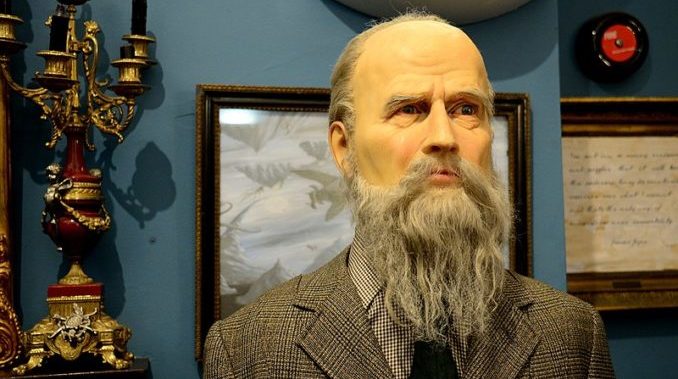
George Bernard Shaw is commonly accepted to be among the greatest playwrights to have lived. With more than sixty plays to his credit, a Nobel Prize in Literature and works that continue to be produced more than a century after their creation, a strong case can be made for that legacy. Other aspects of his life are a bit more controversial. He was aggressively atheistic at a time when that was scandalous, although it has since become considerably less so. He was also a strong supporter of eugenics at a time when that was popularly accepted among the well-educated, and it has since become fully discredited. He was a socialist who praised the efforts of Stalin and advocated for mass slaughter of the undesirables… but he could write a romance.
What he couldn’t do is get people to read it in his language.
Shaw, frustrated with the various spelling oddities that crept into English as it incorporated words from other tongues, became a devotee of phonetic writing. He researched shorthand systems and wrote many of his plays using the Pitman system. Upon his death, he bequeathed a large sum of money to furthering humanity in accordance with his vision. He funded a competition to create a new “Proposed British Alphabet”.
The winner of the prize money was Kingsley Read, who created the Shaw Alphabet (later termed the Shavian Alphabet) in 1960 and tweaked it to the satisfaction of the contest judges in August of that same year.
The Shaw Alphabet consisted of 40 distinct characters, each representing a specific sound. All of the letters were constructed so as to avoid close resemblance to any derivations from the Greek or Latin alphabets. most importantly, every word could now be spelled phonetically.
The consternation of millions of children being forced to memorize the “I before E” rule and its exceptions went away. No longer was there confusion about the addition of “u” to “color” when translating from American to British English. “ough” no longer had one sound for “ought”, another for “rough” and another still for “cough”. World peace immediately followed.
Okay, that last part didn’t happen, not in any way… because overwhelmingly, people looked at the new alphabet and decided against using it. Apart from being used to print up a few copies of his plays and as a curiosity for linguists, it was a complete failure.
Kind of like eugenics and mass slaughter of undesirables. Perhaps Shaw should have stuck to plays….
Question of the night: What is a play you enjoy?
